Legal Aspects of Business: Agency Laws, Duties, and Legal Cases
VerifiedAdded on 2023/01/12
|10
|3023
|27
Report
AI Summary
This report delves into the legal aspects of business, specifically focusing on agency law. It begins with an introduction to the concept, highlighting its importance in maintaining legal obligations and providing a stable framework within an organization. The main body provides a detailed explanation of agency laws, defining the relationship between a principal and an agent, and outlining the key features and characteristics of agency. It further explores the duties of an agent towards the principal, including the duty to follow lawful instructions, the duty of care and skill, the duty to avoid conflicts of interest, and the duty to account. Each duty is illustrated with relevant case laws, such as Bechem v Gordon, Keppel v Wheeler, Flinch v Broad, and Arona v AIG Ltd, to provide a comprehensive understanding of the legal principles involved. The report concludes by summarizing the key takeaways and emphasizing the significance of agency law in the business environment.
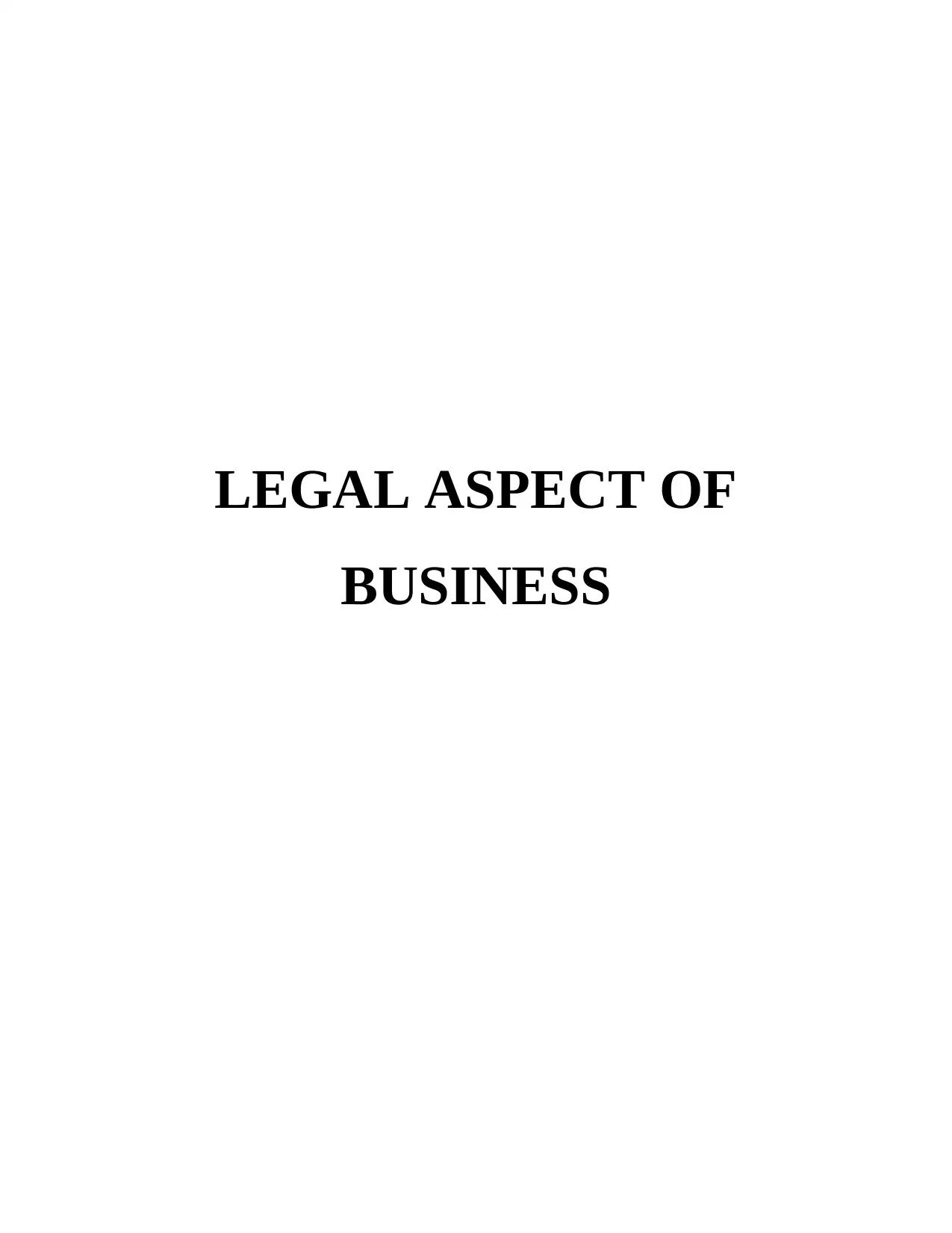
LEGAL ASPECT OF
BUSINESS
BUSINESS
Paraphrase This Document
Need a fresh take? Get an instant paraphrase of this document with our AI Paraphraser
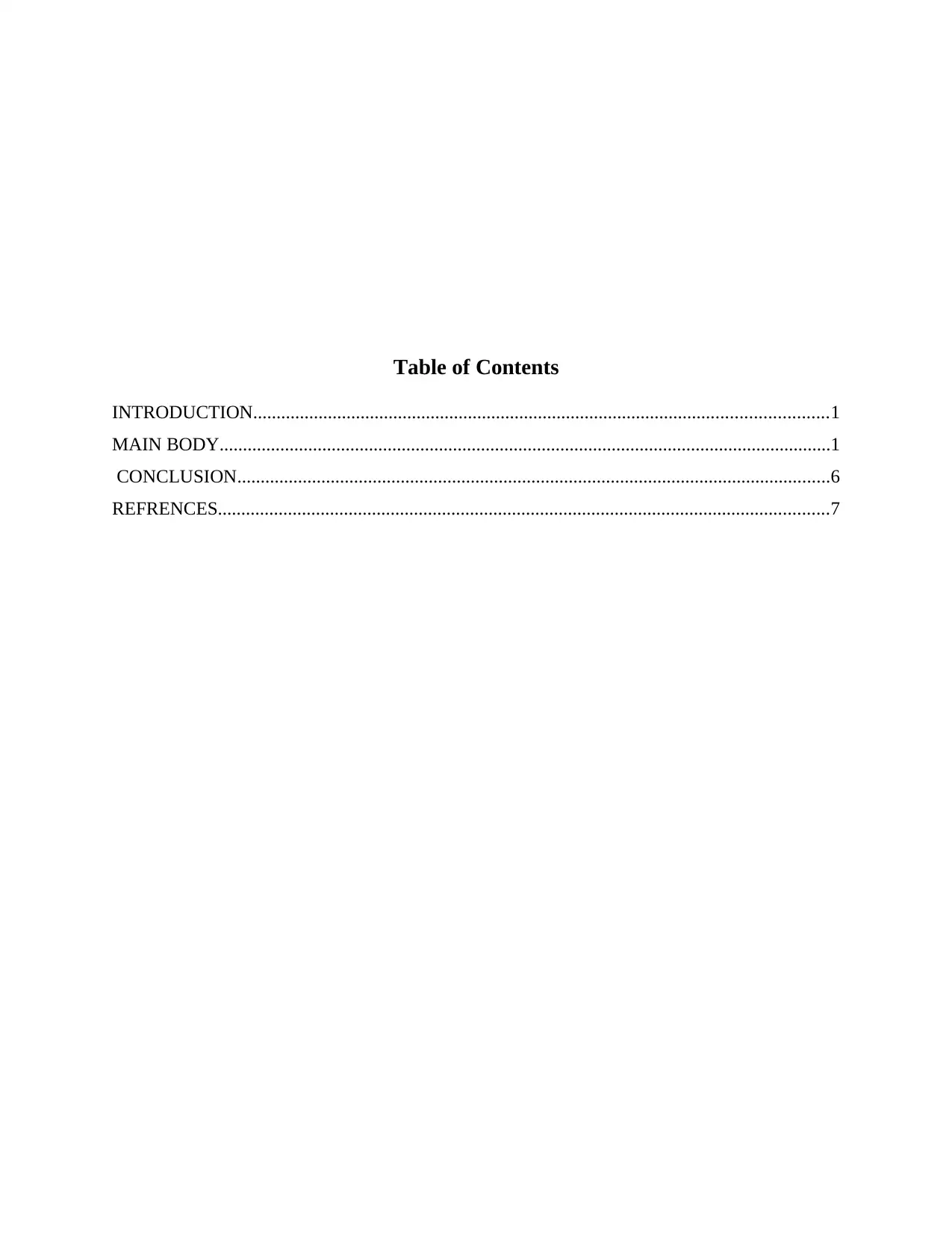
Table of Contents
INTRODUCTION...........................................................................................................................1
MAIN BODY...................................................................................................................................1
CONCLUSION...............................................................................................................................6
REFRENCES...................................................................................................................................7
INTRODUCTION...........................................................................................................................1
MAIN BODY...................................................................................................................................1
CONCLUSION...............................................................................................................................6
REFRENCES...................................................................................................................................7
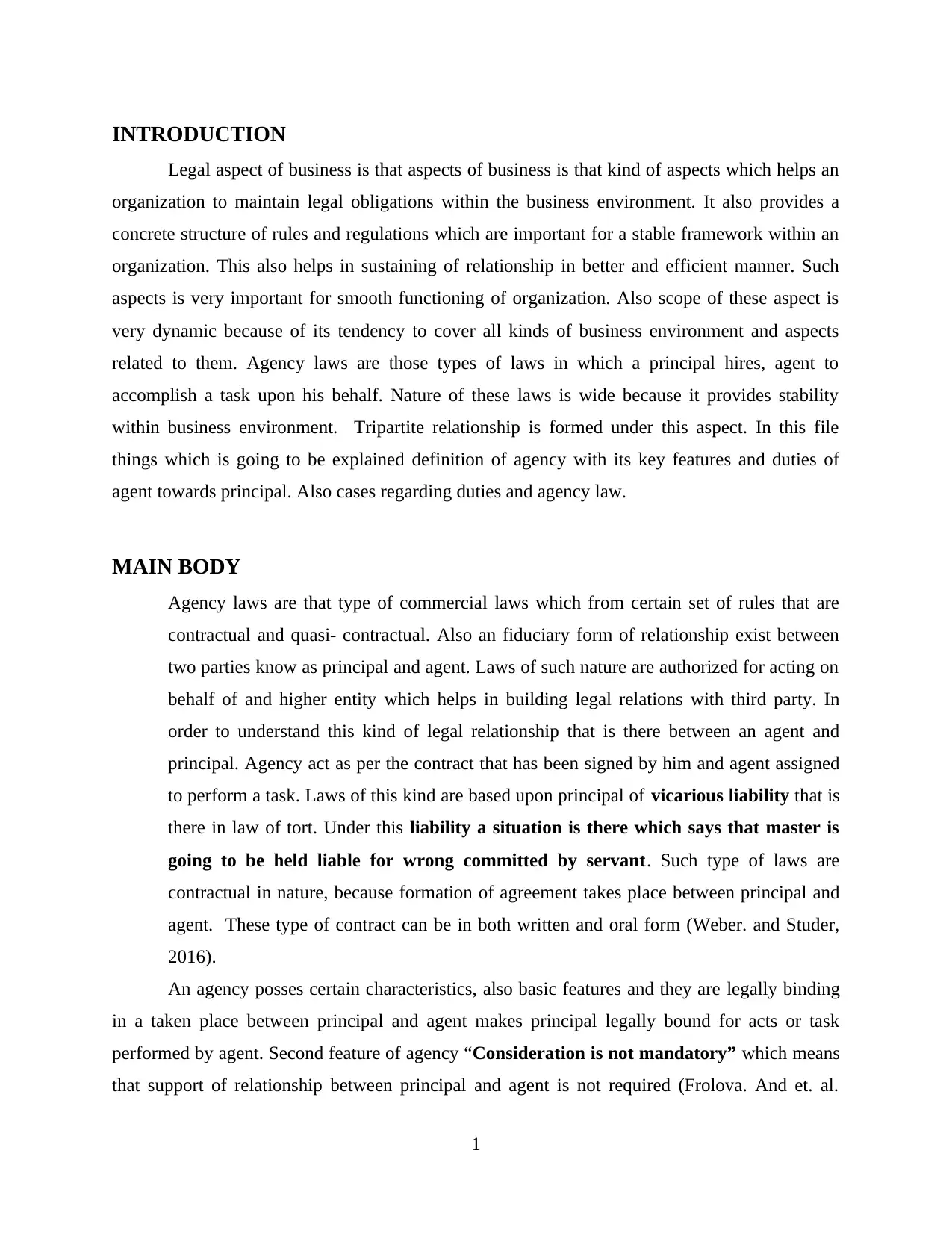
INTRODUCTION
Legal aspect of business is that aspects of business is that kind of aspects which helps an
organization to maintain legal obligations within the business environment. It also provides a
concrete structure of rules and regulations which are important for a stable framework within an
organization. This also helps in sustaining of relationship in better and efficient manner. Such
aspects is very important for smooth functioning of organization. Also scope of these aspect is
very dynamic because of its tendency to cover all kinds of business environment and aspects
related to them. Agency laws are those types of laws in which a principal hires, agent to
accomplish a task upon his behalf. Nature of these laws is wide because it provides stability
within business environment. Tripartite relationship is formed under this aspect. In this file
things which is going to be explained definition of agency with its key features and duties of
agent towards principal. Also cases regarding duties and agency law.
MAIN BODY
Agency laws are that type of commercial laws which from certain set of rules that are
contractual and quasi- contractual. Also an fiduciary form of relationship exist between
two parties know as principal and agent. Laws of such nature are authorized for acting on
behalf of and higher entity which helps in building legal relations with third party. In
order to understand this kind of legal relationship that is there between an agent and
principal. Agency act as per the contract that has been signed by him and agent assigned
to perform a task. Laws of this kind are based upon principal of vicarious liability that is
there in law of tort. Under this liability a situation is there which says that master is
going to be held liable for wrong committed by servant. Such type of laws are
contractual in nature, because formation of agreement takes place between principal and
agent. These type of contract can be in both written and oral form (Weber. and Studer,
2016).
An agency posses certain characteristics, also basic features and they are legally binding
in a taken place between principal and agent makes principal legally bound for acts or task
performed by agent. Second feature of agency “Consideration is not mandatory” which means
that support of relationship between principal and agent is not required (Frolova. And et. al.
1
Legal aspect of business is that aspects of business is that kind of aspects which helps an
organization to maintain legal obligations within the business environment. It also provides a
concrete structure of rules and regulations which are important for a stable framework within an
organization. This also helps in sustaining of relationship in better and efficient manner. Such
aspects is very important for smooth functioning of organization. Also scope of these aspect is
very dynamic because of its tendency to cover all kinds of business environment and aspects
related to them. Agency laws are those types of laws in which a principal hires, agent to
accomplish a task upon his behalf. Nature of these laws is wide because it provides stability
within business environment. Tripartite relationship is formed under this aspect. In this file
things which is going to be explained definition of agency with its key features and duties of
agent towards principal. Also cases regarding duties and agency law.
MAIN BODY
Agency laws are that type of commercial laws which from certain set of rules that are
contractual and quasi- contractual. Also an fiduciary form of relationship exist between
two parties know as principal and agent. Laws of such nature are authorized for acting on
behalf of and higher entity which helps in building legal relations with third party. In
order to understand this kind of legal relationship that is there between an agent and
principal. Agency act as per the contract that has been signed by him and agent assigned
to perform a task. Laws of this kind are based upon principal of vicarious liability that is
there in law of tort. Under this liability a situation is there which says that master is
going to be held liable for wrong committed by servant. Such type of laws are
contractual in nature, because formation of agreement takes place between principal and
agent. These type of contract can be in both written and oral form (Weber. and Studer,
2016).
An agency posses certain characteristics, also basic features and they are legally binding
in a taken place between principal and agent makes principal legally bound for acts or task
performed by agent. Second feature of agency “Consideration is not mandatory” which means
that support of relationship between principal and agent is not required (Frolova. And et. al.
1
⊘ This is a preview!⊘
Do you want full access?
Subscribe today to unlock all pages.

Trusted by 1+ million students worldwide
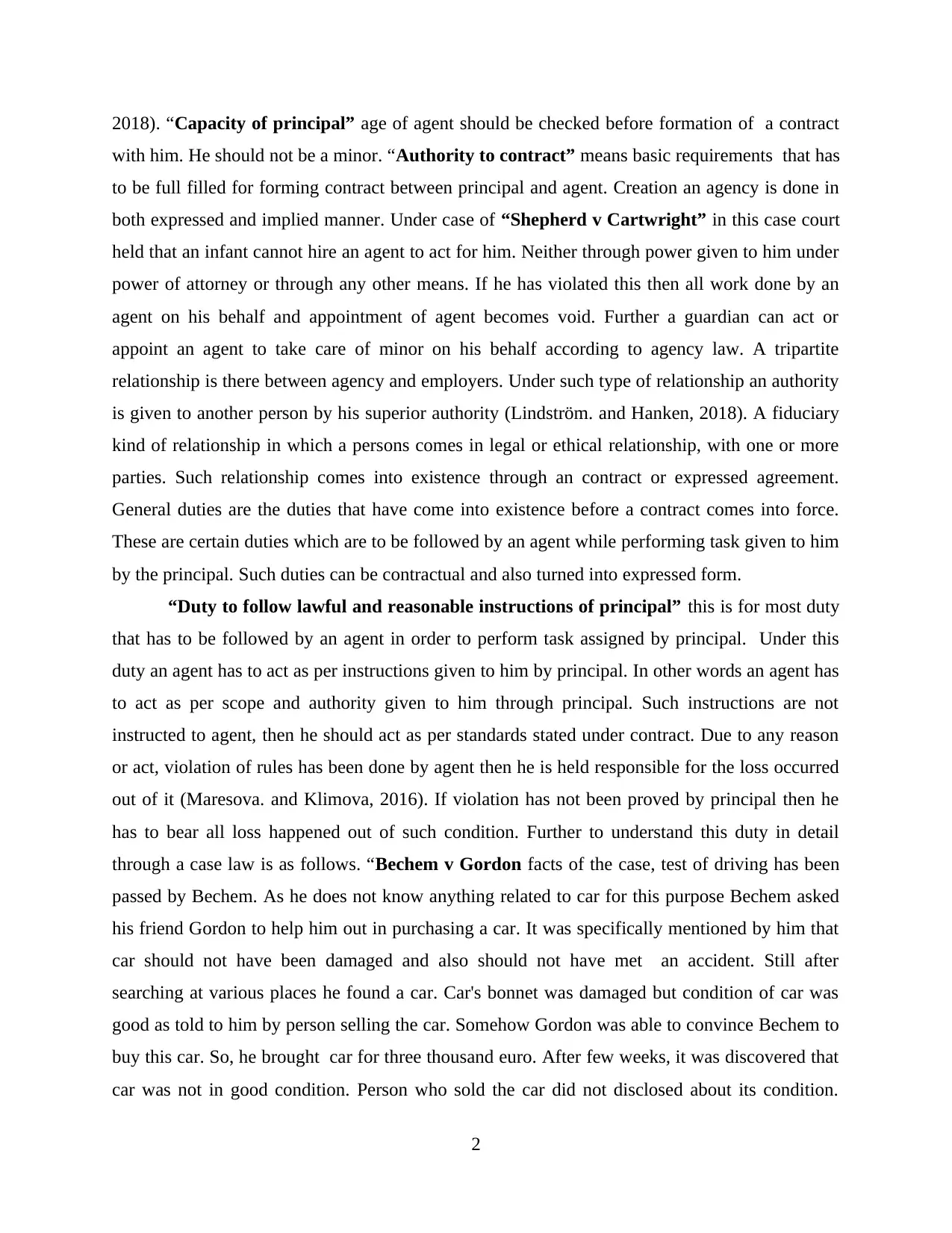
2018). “Capacity of principal” age of agent should be checked before formation of a contract
with him. He should not be a minor. “Authority to contract” means basic requirements that has
to be full filled for forming contract between principal and agent. Creation an agency is done in
both expressed and implied manner. Under case of “Shepherd v Cartwright” in this case court
held that an infant cannot hire an agent to act for him. Neither through power given to him under
power of attorney or through any other means. If he has violated this then all work done by an
agent on his behalf and appointment of agent becomes void. Further a guardian can act or
appoint an agent to take care of minor on his behalf according to agency law. A tripartite
relationship is there between agency and employers. Under such type of relationship an authority
is given to another person by his superior authority (Lindström. and Hanken, 2018). A fiduciary
kind of relationship in which a persons comes in legal or ethical relationship, with one or more
parties. Such relationship comes into existence through an contract or expressed agreement.
General duties are the duties that have come into existence before a contract comes into force.
These are certain duties which are to be followed by an agent while performing task given to him
by the principal. Such duties can be contractual and also turned into expressed form.
“Duty to follow lawful and reasonable instructions of principal” this is for most duty
that has to be followed by an agent in order to perform task assigned by principal. Under this
duty an agent has to act as per instructions given to him by principal. In other words an agent has
to act as per scope and authority given to him through principal. Such instructions are not
instructed to agent, then he should act as per standards stated under contract. Due to any reason
or act, violation of rules has been done by agent then he is held responsible for the loss occurred
out of it (Maresova. and Klimova, 2016). If violation has not been proved by principal then he
has to bear all loss happened out of such condition. Further to understand this duty in detail
through a case law is as follows. “Bechem v Gordon facts of the case, test of driving has been
passed by Bechem. As he does not know anything related to car for this purpose Bechem asked
his friend Gordon to help him out in purchasing a car. It was specifically mentioned by him that
car should not have been damaged and also should not have met an accident. Still after
searching at various places he found a car. Car's bonnet was damaged but condition of car was
good as told to him by person selling the car. Somehow Gordon was able to convince Bechem to
buy this car. So, he brought car for three thousand euro. After few weeks, it was discovered that
car was not in good condition. Person who sold the car did not disclosed about its condition.
2
with him. He should not be a minor. “Authority to contract” means basic requirements that has
to be full filled for forming contract between principal and agent. Creation an agency is done in
both expressed and implied manner. Under case of “Shepherd v Cartwright” in this case court
held that an infant cannot hire an agent to act for him. Neither through power given to him under
power of attorney or through any other means. If he has violated this then all work done by an
agent on his behalf and appointment of agent becomes void. Further a guardian can act or
appoint an agent to take care of minor on his behalf according to agency law. A tripartite
relationship is there between agency and employers. Under such type of relationship an authority
is given to another person by his superior authority (Lindström. and Hanken, 2018). A fiduciary
kind of relationship in which a persons comes in legal or ethical relationship, with one or more
parties. Such relationship comes into existence through an contract or expressed agreement.
General duties are the duties that have come into existence before a contract comes into force.
These are certain duties which are to be followed by an agent while performing task given to him
by the principal. Such duties can be contractual and also turned into expressed form.
“Duty to follow lawful and reasonable instructions of principal” this is for most duty
that has to be followed by an agent in order to perform task assigned by principal. Under this
duty an agent has to act as per instructions given to him by principal. In other words an agent has
to act as per scope and authority given to him through principal. Such instructions are not
instructed to agent, then he should act as per standards stated under contract. Due to any reason
or act, violation of rules has been done by agent then he is held responsible for the loss occurred
out of it (Maresova. and Klimova, 2016). If violation has not been proved by principal then he
has to bear all loss happened out of such condition. Further to understand this duty in detail
through a case law is as follows. “Bechem v Gordon facts of the case, test of driving has been
passed by Bechem. As he does not know anything related to car for this purpose Bechem asked
his friend Gordon to help him out in purchasing a car. It was specifically mentioned by him that
car should not have been damaged and also should not have met an accident. Still after
searching at various places he found a car. Car's bonnet was damaged but condition of car was
good as told to him by person selling the car. Somehow Gordon was able to convince Bechem to
buy this car. So, he brought car for three thousand euro. After few weeks, it was discovered that
car was not in good condition. Person who sold the car did not disclosed about its condition.
2
Paraphrase This Document
Need a fresh take? Get an instant paraphrase of this document with our AI Paraphraser
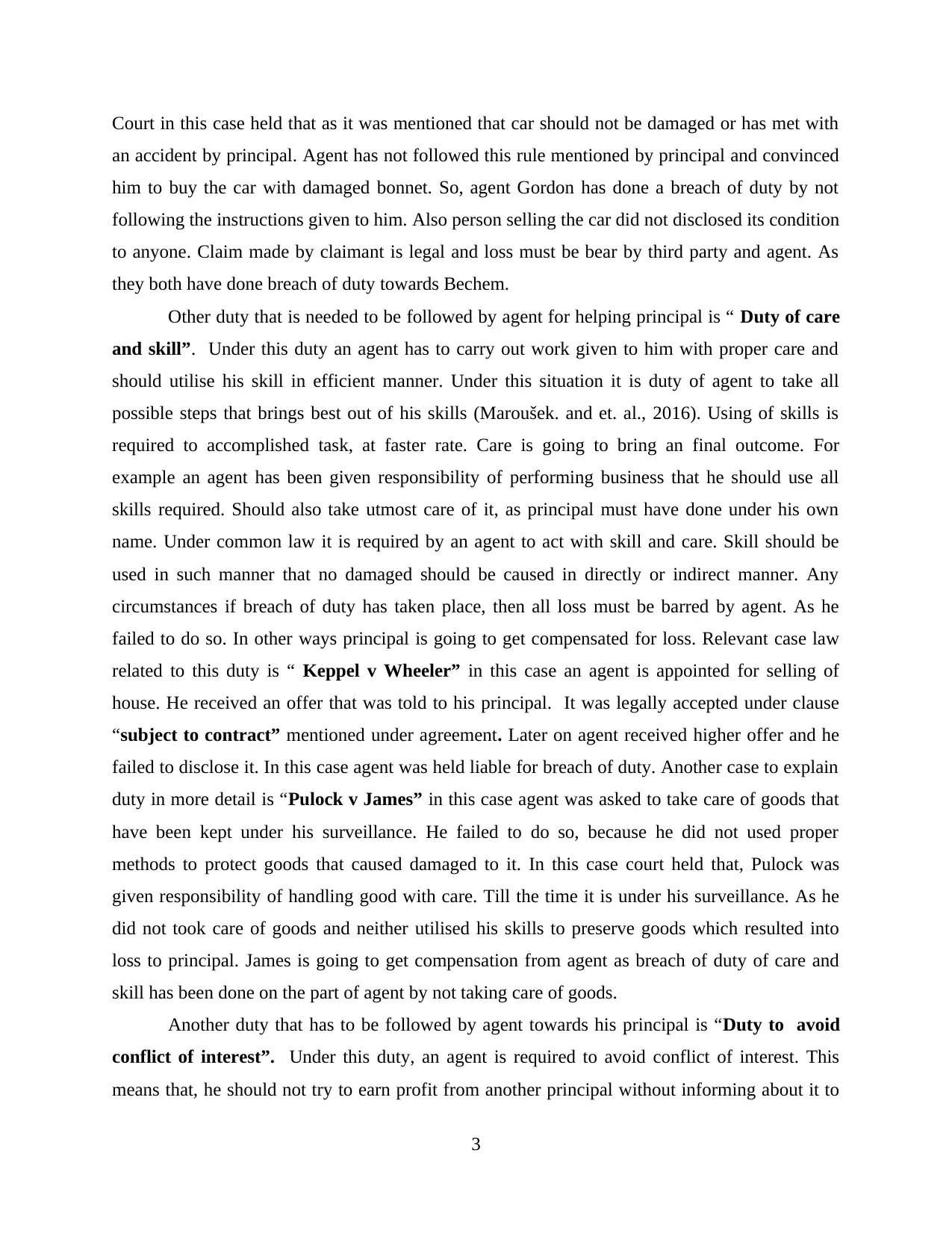
Court in this case held that as it was mentioned that car should not be damaged or has met with
an accident by principal. Agent has not followed this rule mentioned by principal and convinced
him to buy the car with damaged bonnet. So, agent Gordon has done a breach of duty by not
following the instructions given to him. Also person selling the car did not disclosed its condition
to anyone. Claim made by claimant is legal and loss must be bear by third party and agent. As
they both have done breach of duty towards Bechem.
Other duty that is needed to be followed by agent for helping principal is “ Duty of care
and skill”. Under this duty an agent has to carry out work given to him with proper care and
should utilise his skill in efficient manner. Under this situation it is duty of agent to take all
possible steps that brings best out of his skills (Maroušek. and et. al., 2016). Using of skills is
required to accomplished task, at faster rate. Care is going to bring an final outcome. For
example an agent has been given responsibility of performing business that he should use all
skills required. Should also take utmost care of it, as principal must have done under his own
name. Under common law it is required by an agent to act with skill and care. Skill should be
used in such manner that no damaged should be caused in directly or indirect manner. Any
circumstances if breach of duty has taken place, then all loss must be barred by agent. As he
failed to do so. In other ways principal is going to get compensated for loss. Relevant case law
related to this duty is “ Keppel v Wheeler” in this case an agent is appointed for selling of
house. He received an offer that was told to his principal. It was legally accepted under clause
“subject to contract” mentioned under agreement. Later on agent received higher offer and he
failed to disclose it. In this case agent was held liable for breach of duty. Another case to explain
duty in more detail is “Pulock v James” in this case agent was asked to take care of goods that
have been kept under his surveillance. He failed to do so, because he did not used proper
methods to protect goods that caused damaged to it. In this case court held that, Pulock was
given responsibility of handling good with care. Till the time it is under his surveillance. As he
did not took care of goods and neither utilised his skills to preserve goods which resulted into
loss to principal. James is going to get compensation from agent as breach of duty of care and
skill has been done on the part of agent by not taking care of goods.
Another duty that has to be followed by agent towards his principal is “Duty to avoid
conflict of interest”. Under this duty, an agent is required to avoid conflict of interest. This
means that, he should not try to earn profit from another principal without informing about it to
3
an accident by principal. Agent has not followed this rule mentioned by principal and convinced
him to buy the car with damaged bonnet. So, agent Gordon has done a breach of duty by not
following the instructions given to him. Also person selling the car did not disclosed its condition
to anyone. Claim made by claimant is legal and loss must be bear by third party and agent. As
they both have done breach of duty towards Bechem.
Other duty that is needed to be followed by agent for helping principal is “ Duty of care
and skill”. Under this duty an agent has to carry out work given to him with proper care and
should utilise his skill in efficient manner. Under this situation it is duty of agent to take all
possible steps that brings best out of his skills (Maroušek. and et. al., 2016). Using of skills is
required to accomplished task, at faster rate. Care is going to bring an final outcome. For
example an agent has been given responsibility of performing business that he should use all
skills required. Should also take utmost care of it, as principal must have done under his own
name. Under common law it is required by an agent to act with skill and care. Skill should be
used in such manner that no damaged should be caused in directly or indirect manner. Any
circumstances if breach of duty has taken place, then all loss must be barred by agent. As he
failed to do so. In other ways principal is going to get compensated for loss. Relevant case law
related to this duty is “ Keppel v Wheeler” in this case an agent is appointed for selling of
house. He received an offer that was told to his principal. It was legally accepted under clause
“subject to contract” mentioned under agreement. Later on agent received higher offer and he
failed to disclose it. In this case agent was held liable for breach of duty. Another case to explain
duty in more detail is “Pulock v James” in this case agent was asked to take care of goods that
have been kept under his surveillance. He failed to do so, because he did not used proper
methods to protect goods that caused damaged to it. In this case court held that, Pulock was
given responsibility of handling good with care. Till the time it is under his surveillance. As he
did not took care of goods and neither utilised his skills to preserve goods which resulted into
loss to principal. James is going to get compensation from agent as breach of duty of care and
skill has been done on the part of agent by not taking care of goods.
Another duty that has to be followed by agent towards his principal is “Duty to avoid
conflict of interest”. Under this duty, an agent is required to avoid conflict of interest. This
means that, he should not try to earn profit from another principal without informing about it to
3
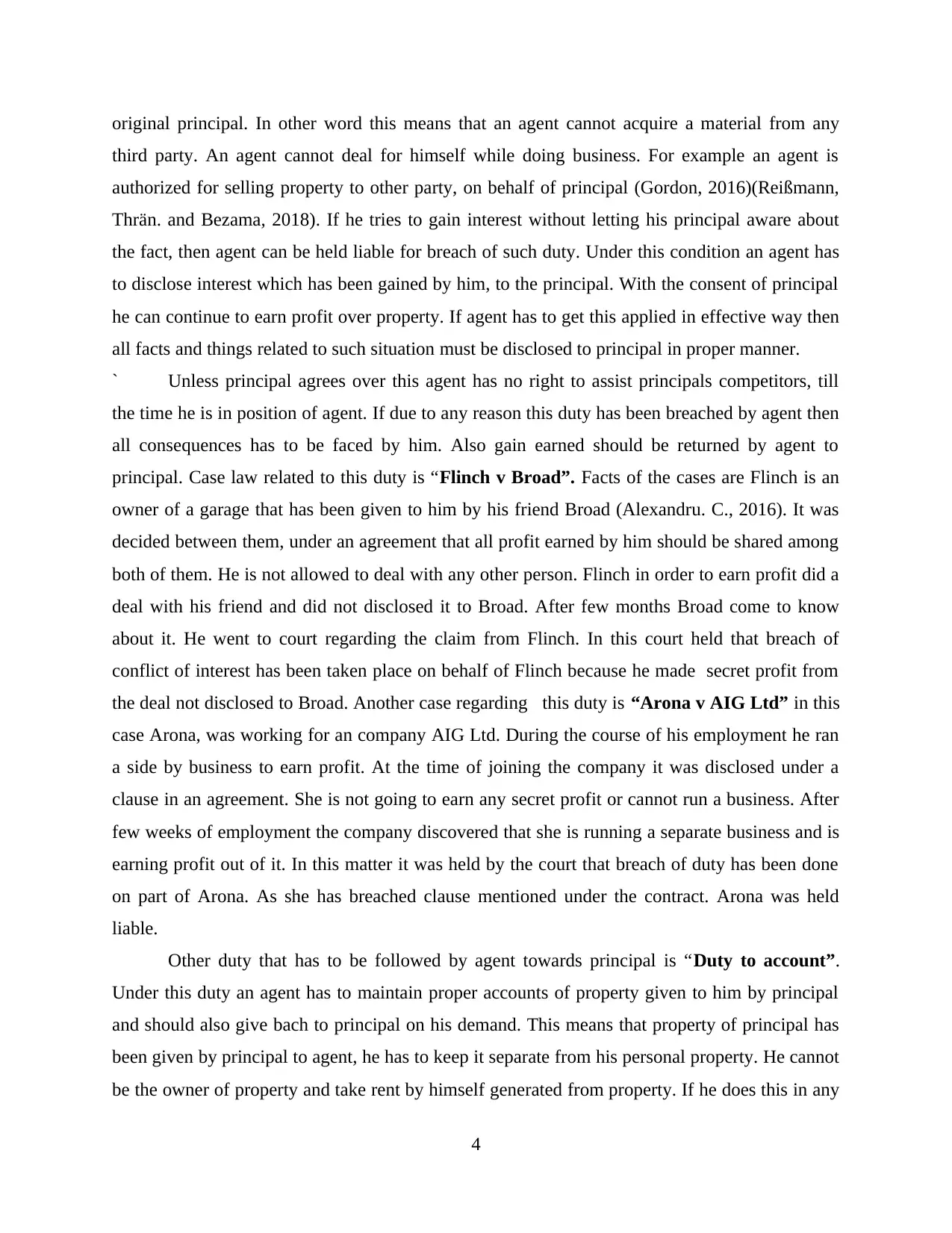
original principal. In other word this means that an agent cannot acquire a material from any
third party. An agent cannot deal for himself while doing business. For example an agent is
authorized for selling property to other party, on behalf of principal (Gordon, 2016)(Reißmann,
Thrän. and Bezama, 2018). If he tries to gain interest without letting his principal aware about
the fact, then agent can be held liable for breach of such duty. Under this condition an agent has
to disclose interest which has been gained by him, to the principal. With the consent of principal
he can continue to earn profit over property. If agent has to get this applied in effective way then
all facts and things related to such situation must be disclosed to principal in proper manner.
` Unless principal agrees over this agent has no right to assist principals competitors, till
the time he is in position of agent. If due to any reason this duty has been breached by agent then
all consequences has to be faced by him. Also gain earned should be returned by agent to
principal. Case law related to this duty is “Flinch v Broad”. Facts of the cases are Flinch is an
owner of a garage that has been given to him by his friend Broad (Alexandru. C., 2016). It was
decided between them, under an agreement that all profit earned by him should be shared among
both of them. He is not allowed to deal with any other person. Flinch in order to earn profit did a
deal with his friend and did not disclosed it to Broad. After few months Broad come to know
about it. He went to court regarding the claim from Flinch. In this court held that breach of
conflict of interest has been taken place on behalf of Flinch because he made secret profit from
the deal not disclosed to Broad. Another case regarding this duty is “Arona v AIG Ltd” in this
case Arona, was working for an company AIG Ltd. During the course of his employment he ran
a side by business to earn profit. At the time of joining the company it was disclosed under a
clause in an agreement. She is not going to earn any secret profit or cannot run a business. After
few weeks of employment the company discovered that she is running a separate business and is
earning profit out of it. In this matter it was held by the court that breach of duty has been done
on part of Arona. As she has breached clause mentioned under the contract. Arona was held
liable.
Other duty that has to be followed by agent towards principal is “Duty to account”.
Under this duty an agent has to maintain proper accounts of property given to him by principal
and should also give bach to principal on his demand. This means that property of principal has
been given by principal to agent, he has to keep it separate from his personal property. He cannot
be the owner of property and take rent by himself generated from property. If he does this in any
4
third party. An agent cannot deal for himself while doing business. For example an agent is
authorized for selling property to other party, on behalf of principal (Gordon, 2016)(Reißmann,
Thrän. and Bezama, 2018). If he tries to gain interest without letting his principal aware about
the fact, then agent can be held liable for breach of such duty. Under this condition an agent has
to disclose interest which has been gained by him, to the principal. With the consent of principal
he can continue to earn profit over property. If agent has to get this applied in effective way then
all facts and things related to such situation must be disclosed to principal in proper manner.
` Unless principal agrees over this agent has no right to assist principals competitors, till
the time he is in position of agent. If due to any reason this duty has been breached by agent then
all consequences has to be faced by him. Also gain earned should be returned by agent to
principal. Case law related to this duty is “Flinch v Broad”. Facts of the cases are Flinch is an
owner of a garage that has been given to him by his friend Broad (Alexandru. C., 2016). It was
decided between them, under an agreement that all profit earned by him should be shared among
both of them. He is not allowed to deal with any other person. Flinch in order to earn profit did a
deal with his friend and did not disclosed it to Broad. After few months Broad come to know
about it. He went to court regarding the claim from Flinch. In this court held that breach of
conflict of interest has been taken place on behalf of Flinch because he made secret profit from
the deal not disclosed to Broad. Another case regarding this duty is “Arona v AIG Ltd” in this
case Arona, was working for an company AIG Ltd. During the course of his employment he ran
a side by business to earn profit. At the time of joining the company it was disclosed under a
clause in an agreement. She is not going to earn any secret profit or cannot run a business. After
few weeks of employment the company discovered that she is running a separate business and is
earning profit out of it. In this matter it was held by the court that breach of duty has been done
on part of Arona. As she has breached clause mentioned under the contract. Arona was held
liable.
Other duty that has to be followed by agent towards principal is “Duty to account”.
Under this duty an agent has to maintain proper accounts of property given to him by principal
and should also give bach to principal on his demand. This means that property of principal has
been given by principal to agent, he has to keep it separate from his personal property. He cannot
be the owner of property and take rent by himself generated from property. If he does this in any
4
⊘ This is a preview!⊘
Do you want full access?
Subscribe today to unlock all pages.

Trusted by 1+ million students worldwide
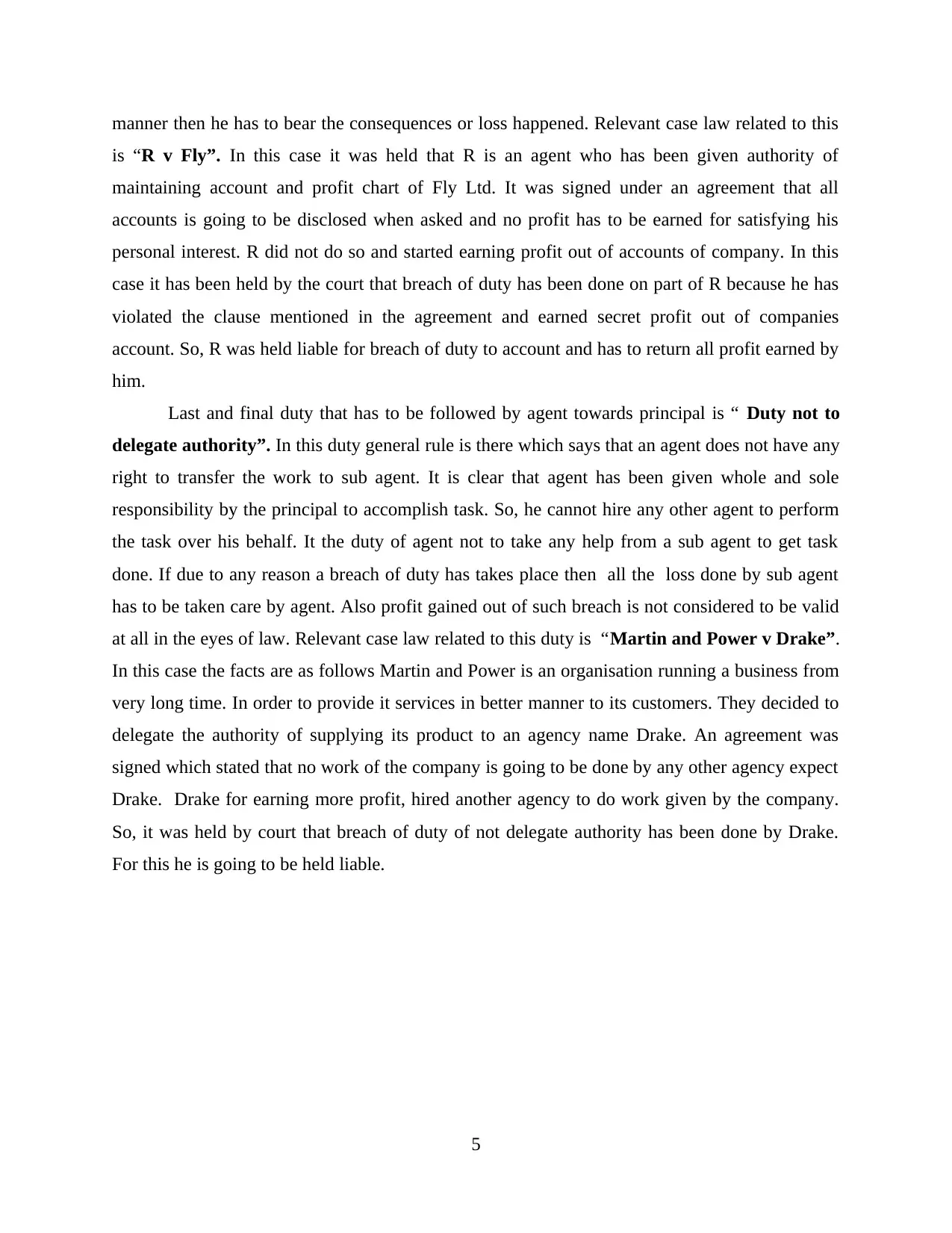
manner then he has to bear the consequences or loss happened. Relevant case law related to this
is “R v Fly”. In this case it was held that R is an agent who has been given authority of
maintaining account and profit chart of Fly Ltd. It was signed under an agreement that all
accounts is going to be disclosed when asked and no profit has to be earned for satisfying his
personal interest. R did not do so and started earning profit out of accounts of company. In this
case it has been held by the court that breach of duty has been done on part of R because he has
violated the clause mentioned in the agreement and earned secret profit out of companies
account. So, R was held liable for breach of duty to account and has to return all profit earned by
him.
Last and final duty that has to be followed by agent towards principal is “ Duty not to
delegate authority”. In this duty general rule is there which says that an agent does not have any
right to transfer the work to sub agent. It is clear that agent has been given whole and sole
responsibility by the principal to accomplish task. So, he cannot hire any other agent to perform
the task over his behalf. It the duty of agent not to take any help from a sub agent to get task
done. If due to any reason a breach of duty has takes place then all the loss done by sub agent
has to be taken care by agent. Also profit gained out of such breach is not considered to be valid
at all in the eyes of law. Relevant case law related to this duty is “Martin and Power v Drake”.
In this case the facts are as follows Martin and Power is an organisation running a business from
very long time. In order to provide it services in better manner to its customers. They decided to
delegate the authority of supplying its product to an agency name Drake. An agreement was
signed which stated that no work of the company is going to be done by any other agency expect
Drake. Drake for earning more profit, hired another agency to do work given by the company.
So, it was held by court that breach of duty of not delegate authority has been done by Drake.
For this he is going to be held liable.
5
is “R v Fly”. In this case it was held that R is an agent who has been given authority of
maintaining account and profit chart of Fly Ltd. It was signed under an agreement that all
accounts is going to be disclosed when asked and no profit has to be earned for satisfying his
personal interest. R did not do so and started earning profit out of accounts of company. In this
case it has been held by the court that breach of duty has been done on part of R because he has
violated the clause mentioned in the agreement and earned secret profit out of companies
account. So, R was held liable for breach of duty to account and has to return all profit earned by
him.
Last and final duty that has to be followed by agent towards principal is “ Duty not to
delegate authority”. In this duty general rule is there which says that an agent does not have any
right to transfer the work to sub agent. It is clear that agent has been given whole and sole
responsibility by the principal to accomplish task. So, he cannot hire any other agent to perform
the task over his behalf. It the duty of agent not to take any help from a sub agent to get task
done. If due to any reason a breach of duty has takes place then all the loss done by sub agent
has to be taken care by agent. Also profit gained out of such breach is not considered to be valid
at all in the eyes of law. Relevant case law related to this duty is “Martin and Power v Drake”.
In this case the facts are as follows Martin and Power is an organisation running a business from
very long time. In order to provide it services in better manner to its customers. They decided to
delegate the authority of supplying its product to an agency name Drake. An agreement was
signed which stated that no work of the company is going to be done by any other agency expect
Drake. Drake for earning more profit, hired another agency to do work given by the company.
So, it was held by court that breach of duty of not delegate authority has been done by Drake.
For this he is going to be held liable.
5
Paraphrase This Document
Need a fresh take? Get an instant paraphrase of this document with our AI Paraphraser
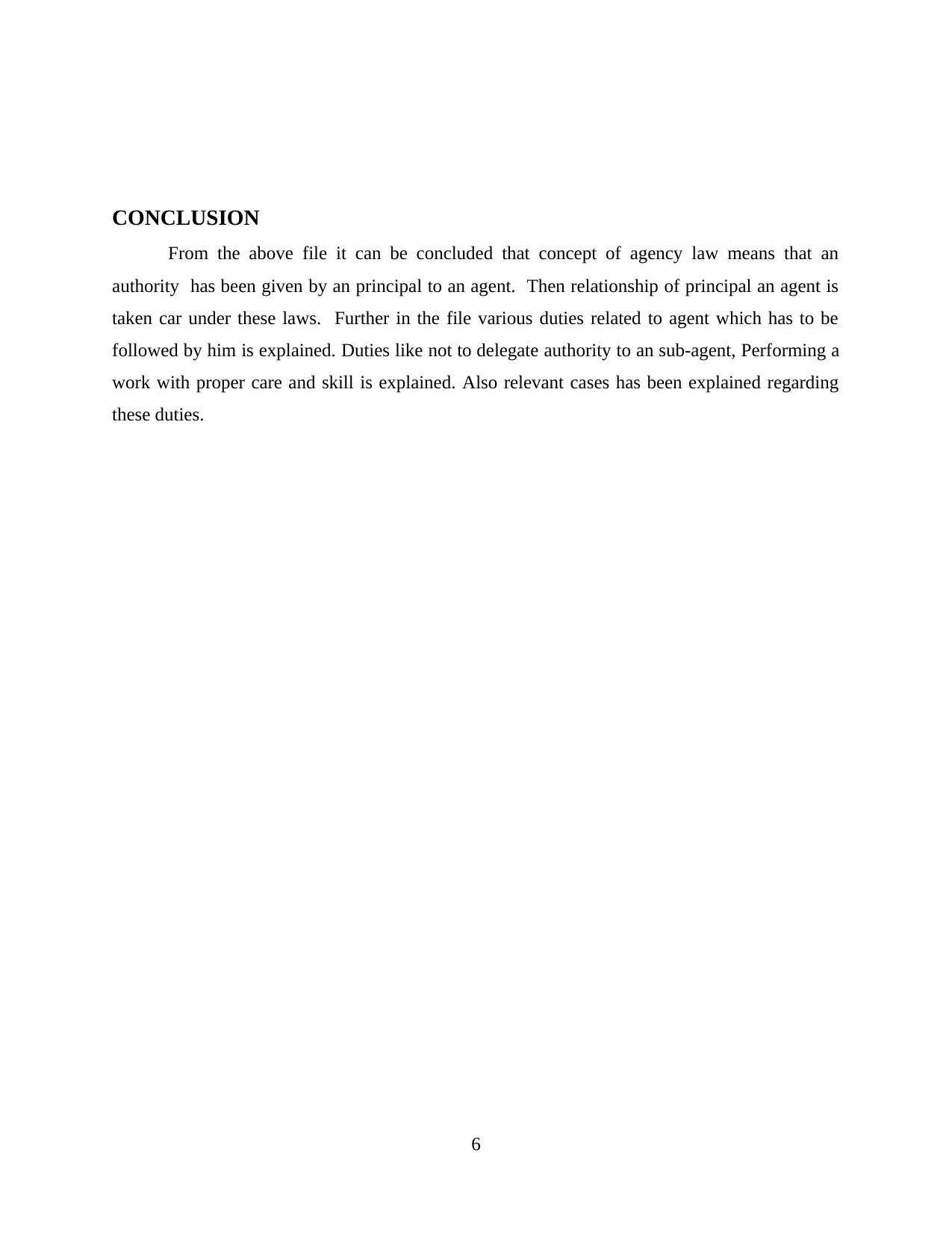
CONCLUSION
From the above file it can be concluded that concept of agency law means that an
authority has been given by an principal to an agent. Then relationship of principal an agent is
taken car under these laws. Further in the file various duties related to agent which has to be
followed by him is explained. Duties like not to delegate authority to an sub-agent, Performing a
work with proper care and skill is explained. Also relevant cases has been explained regarding
these duties.
6
From the above file it can be concluded that concept of agency law means that an
authority has been given by an principal to an agent. Then relationship of principal an agent is
taken car under these laws. Further in the file various duties related to agent which has to be
followed by him is explained. Duties like not to delegate authority to an sub-agent, Performing a
work with proper care and skill is explained. Also relevant cases has been explained regarding
these duties.
6

7
⊘ This is a preview!⊘
Do you want full access?
Subscribe today to unlock all pages.

Trusted by 1+ million students worldwide
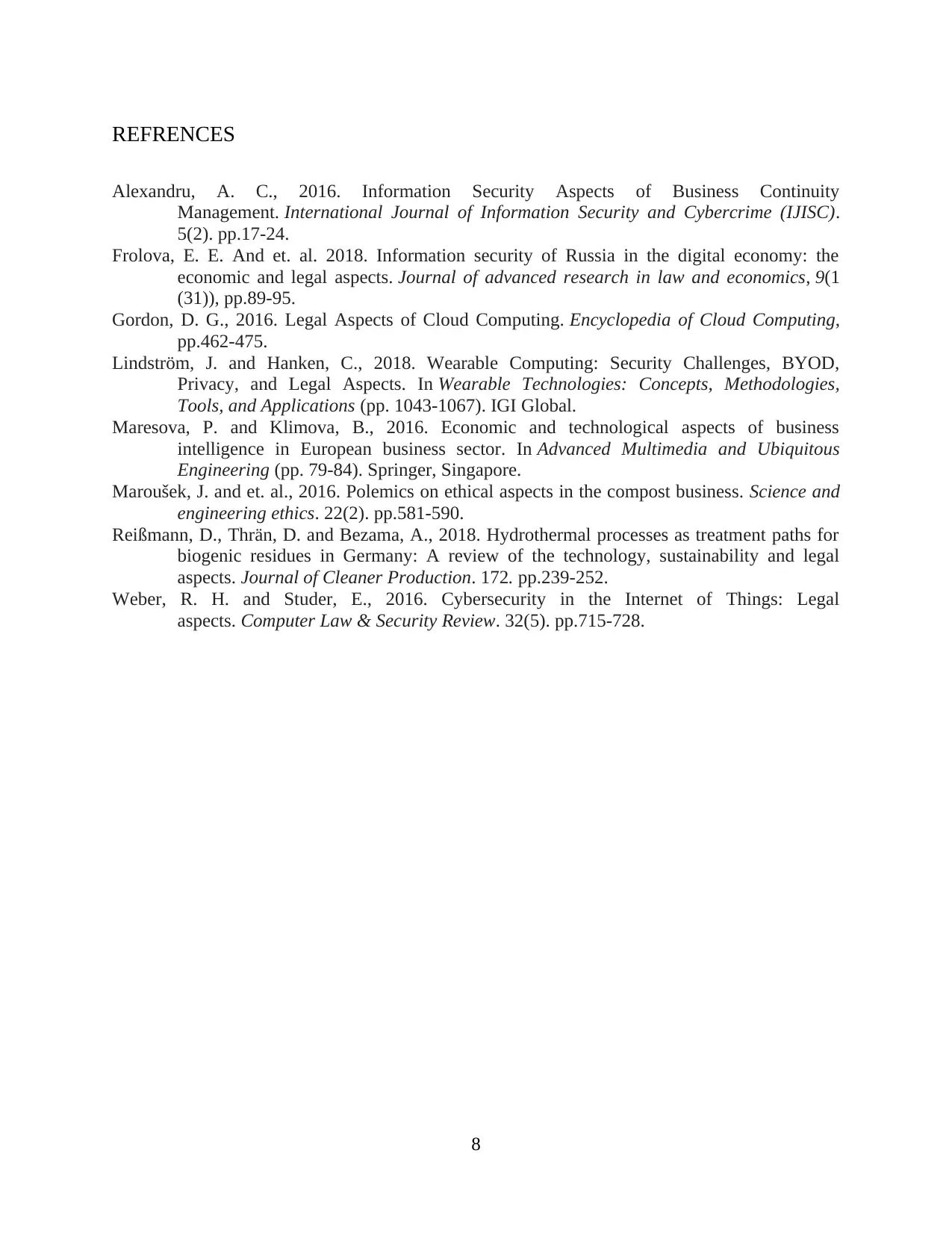
REFRENCES
Alexandru, A. C., 2016. Information Security Aspects of Business Continuity
Management. International Journal of Information Security and Cybercrime (IJISC).
5(2). pp.17-24.
Frolova, E. E. And et. al. 2018. Information security of Russia in the digital economy: the
economic and legal aspects. Journal of advanced research in law and economics, 9(1
(31)), pp.89-95.
Gordon, D. G., 2016. Legal Aspects of Cloud Computing. Encyclopedia of Cloud Computing,
pp.462-475.
Lindström, J. and Hanken, C., 2018. Wearable Computing: Security Challenges, BYOD,
Privacy, and Legal Aspects. In Wearable Technologies: Concepts, Methodologies,
Tools, and Applications (pp. 1043-1067). IGI Global.
Maresova, P. and Klimova, B., 2016. Economic and technological aspects of business
intelligence in European business sector. In Advanced Multimedia and Ubiquitous
Engineering (pp. 79-84). Springer, Singapore.
Maroušek, J. and et. al., 2016. Polemics on ethical aspects in the compost business. Science and
engineering ethics. 22(2). pp.581-590.
Reißmann, D., Thrän, D. and Bezama, A., 2018. Hydrothermal processes as treatment paths for
biogenic residues in Germany: A review of the technology, sustainability and legal
aspects. Journal of Cleaner Production. 172. pp.239-252.
Weber, R. H. and Studer, E., 2016. Cybersecurity in the Internet of Things: Legal
aspects. Computer Law & Security Review. 32(5). pp.715-728.
8
Alexandru, A. C., 2016. Information Security Aspects of Business Continuity
Management. International Journal of Information Security and Cybercrime (IJISC).
5(2). pp.17-24.
Frolova, E. E. And et. al. 2018. Information security of Russia in the digital economy: the
economic and legal aspects. Journal of advanced research in law and economics, 9(1
(31)), pp.89-95.
Gordon, D. G., 2016. Legal Aspects of Cloud Computing. Encyclopedia of Cloud Computing,
pp.462-475.
Lindström, J. and Hanken, C., 2018. Wearable Computing: Security Challenges, BYOD,
Privacy, and Legal Aspects. In Wearable Technologies: Concepts, Methodologies,
Tools, and Applications (pp. 1043-1067). IGI Global.
Maresova, P. and Klimova, B., 2016. Economic and technological aspects of business
intelligence in European business sector. In Advanced Multimedia and Ubiquitous
Engineering (pp. 79-84). Springer, Singapore.
Maroušek, J. and et. al., 2016. Polemics on ethical aspects in the compost business. Science and
engineering ethics. 22(2). pp.581-590.
Reißmann, D., Thrän, D. and Bezama, A., 2018. Hydrothermal processes as treatment paths for
biogenic residues in Germany: A review of the technology, sustainability and legal
aspects. Journal of Cleaner Production. 172. pp.239-252.
Weber, R. H. and Studer, E., 2016. Cybersecurity in the Internet of Things: Legal
aspects. Computer Law & Security Review. 32(5). pp.715-728.
8
1 out of 10
Related Documents
Your All-in-One AI-Powered Toolkit for Academic Success.
+13062052269
info@desklib.com
Available 24*7 on WhatsApp / Email
![[object Object]](/_next/static/media/star-bottom.7253800d.svg)
Unlock your academic potential
Copyright © 2020–2026 A2Z Services. All Rights Reserved. Developed and managed by ZUCOL.





